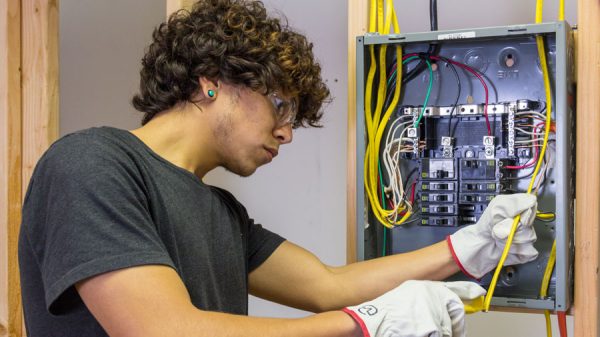Connectivity issues: a valid excuse for lack of engagement
In a time of crazy internet connections and overloaded systems, students need a break
December 23, 2020
COVID-19 has caused teachers and students to become more technology-friendly due to social distancing and remote students, but for many, Google Meets and Zoom calls haven’t exactly worked in their favor. Many students arrive late to class and claim to have “connectivity issues,” or a “slow laptop,” but teachers argue that these issues are hard to prove.
Truthfully, some students will lie about connectivity problems to get a few more minutes to sleep in, whereas others are genuinely having trouble connecting to their calls for a variety of reasons. Even if some students will make excuses, is embarrassing them for a hypothetical lie worth it? Due to potential humiliation for students and occasional losses of connection for only specific areas, students who claim to have had these issues should not be penalized in any way.
Students could easily become embarrassed if called out by teachers for technology issues, whether telling the truth or not. Teachers, either way, should trust their students’ excuses. Even if students are lying, they will already be punished by missing valuable class time and lessons for upcoming tests.
“A few weeks ago, I had a major test in one of my core classes, and I missed the directions because of computer issues,” junior Alaina Jeitner explained. “I was already stressed out because of this, but if my teacher had called me out in front of the class or questioned me, that would’ve made it a lot worse.”
Most can agree, being picked on by someone publicly for something that cannot be proved or disproved would make classes much worse for students who are already struggling with new formats for coursework.
Another major point is that the locations that students are working in can affect the quality or ability to join Google Meets, which is out of students’ control. In a polls across various social media of 45 RV students living in Eastampton Township, 91% claimed to have connectivity issues on a specific day where students in other townships did not. Teachers cannot use an “all-or-nothing” mentality with technology, because the strength of WiFi will be strictly dependent on location.
To conclude, students should not be penalized for having technology-related issues. Calling out a student as a punishment for arriving late to class due to connection errors will embarrass the student and could be a false accusation. Also, connection issues are strictly dependent on location, so some students living in a certain area might have connection problems when others don’t. Online school is already difficult enough for students, adding in the stress of punishments for something that may be out of their control is too taxing on high-school students.












